Abstract
Objective:
Social support has been identified repeatedly in the literature as being beneficial to individuals suffering from injury or illness. Because of the frequent interaction between athletic trainers and student athletes, the athletic trainer is in a unique position to provide a variety of social support to the athlete. The purpose of the study was (1) to identify the degree to which athletes actually receive each of eight types of social support; (2) to identify the types of social support athletes need or expect to receive from staff and student athletic trainers; and (3) to compare the athletes' satisfaction with the quality of the support received from athletic training staff and students.
Design and Setting:
A questionnaire was used to collect data for this study. It was administered at a Division I university.
Subjects:
Eighty-five student-athletes at a Division I university.
Measurements:
The survey consisted of 24 questions that used a five-point Likert rating scale.
Results:
There was no significant difference in the amount of social support received by athletes from staff and student athletic trainers, in athletes' expectations of staff and student athletic trainers with regard to provision of social support, or in the athletes' level of satisfaction with staff and student athletic trainers' provision of social support.
Conclusions:
Examined collectively, the findings indicate that athletes do not differentiate between staff and student athletic trainers with regard to the provision of social support. However, finding that athletes do not differentiate between staff and student athletic trainers in this area is significant in itself and has implications for athletic training education programs.
Keywords: sport psychology, psychology of injury
Full text
PDF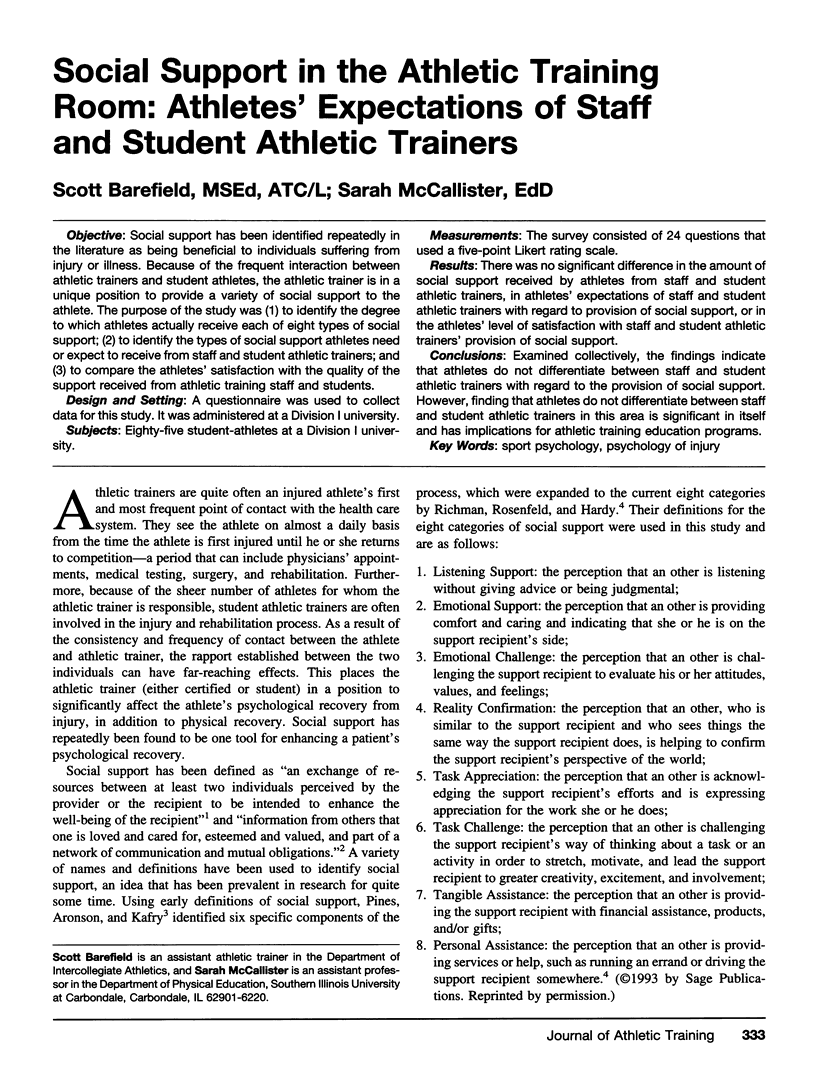
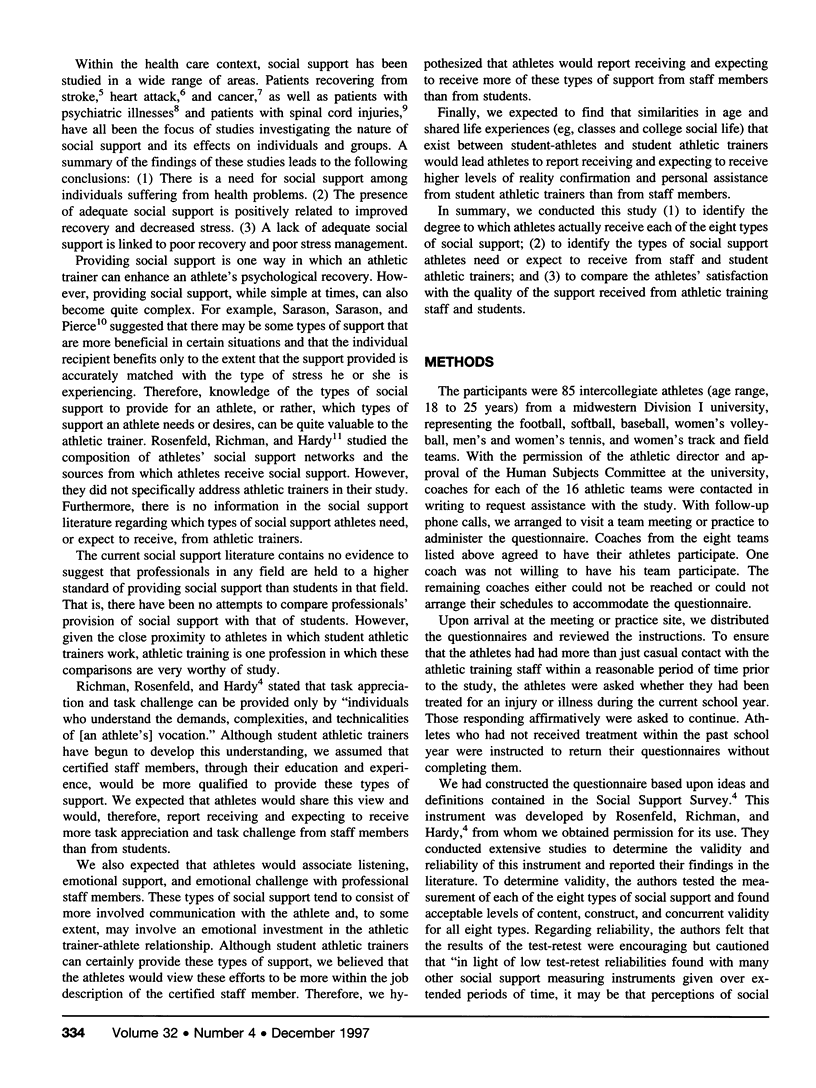
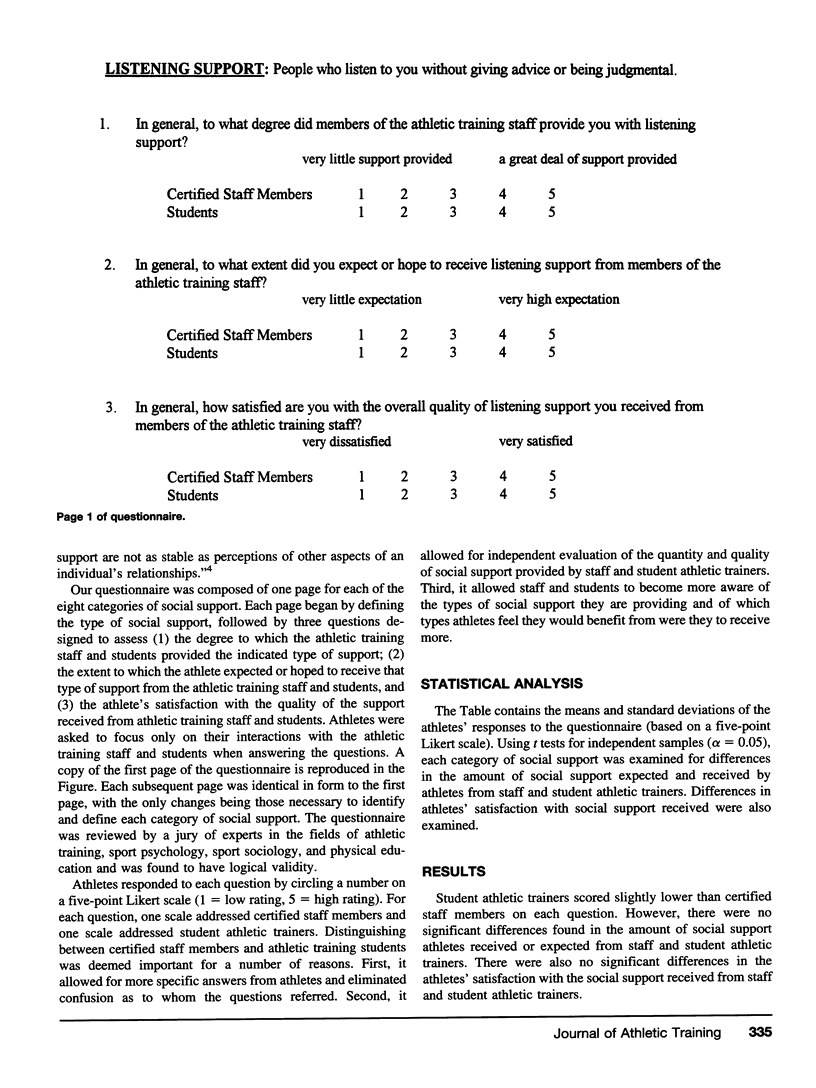
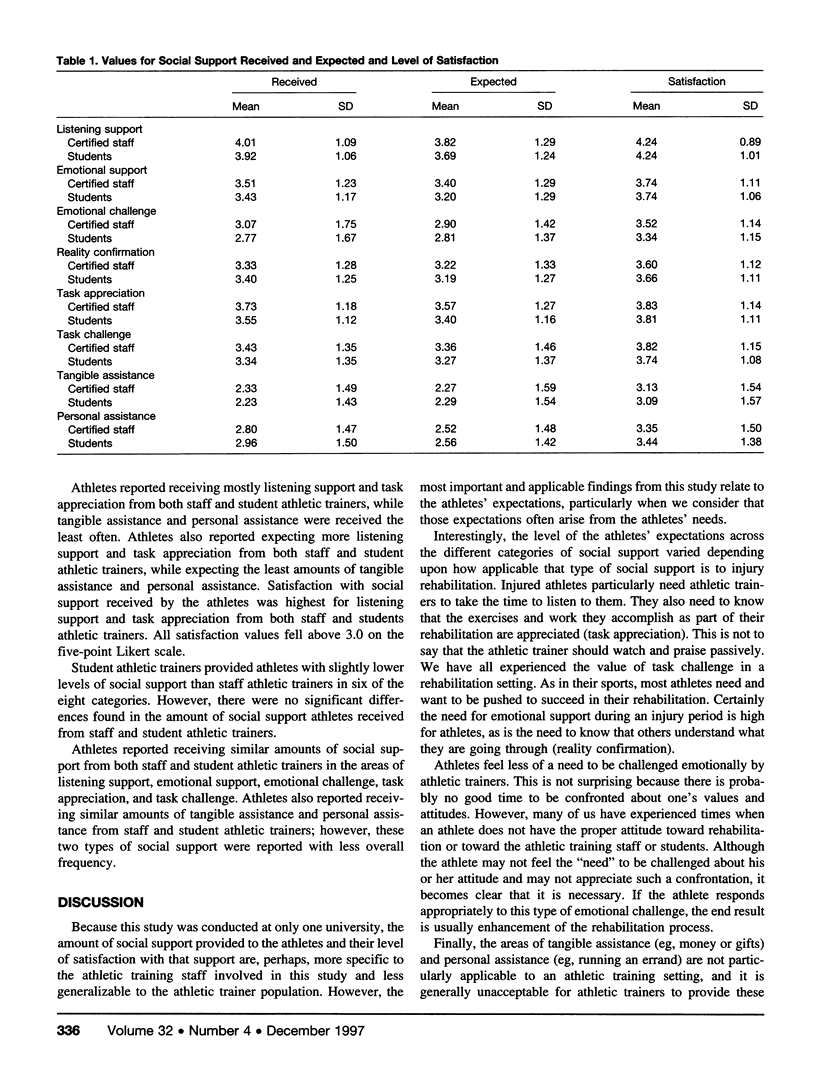
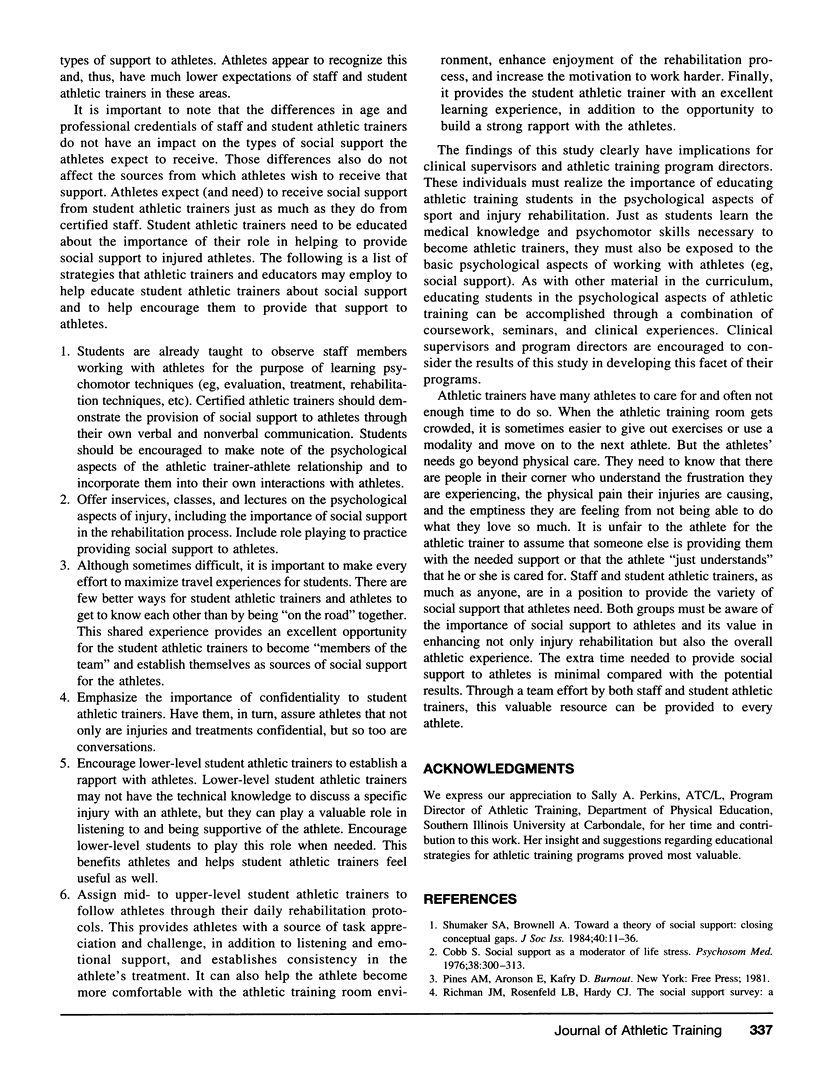
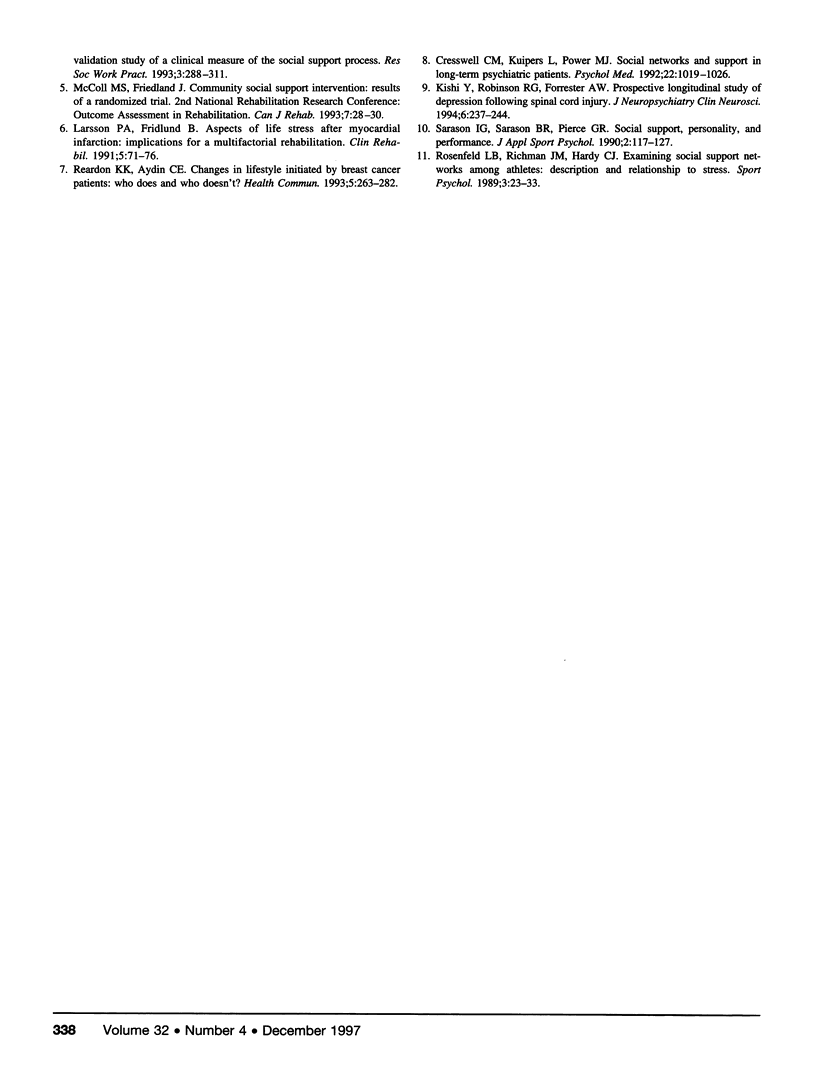
Selected References
These references are in PubMed. This may not be the complete list of references from this article.
- Cobb S. Presidential Address-1976. Social support as a moderator of life stress. Psychosom Med. 1976 Sep-Oct;38(5):300–314. doi: 10.1097/00006842-197609000-00003. [DOI] [PubMed] [Google Scholar]
- Cresswell C. M., Kuipers L., Power M. J. Social networks and support in long-term psychiatric patients. Psychol Med. 1992 Nov;22(4):1019–1026. doi: 10.1017/s0033291700038587. [DOI] [PubMed] [Google Scholar]
- Kishi Y., Robinson R. G., Forrester A. W. Prospective longitudinal study of depression following spinal cord injury. J Neuropsychiatry Clin Neurosci. 1994 Summer;6(3):237–244. doi: 10.1176/jnp.6.3.237. [DOI] [PubMed] [Google Scholar]


